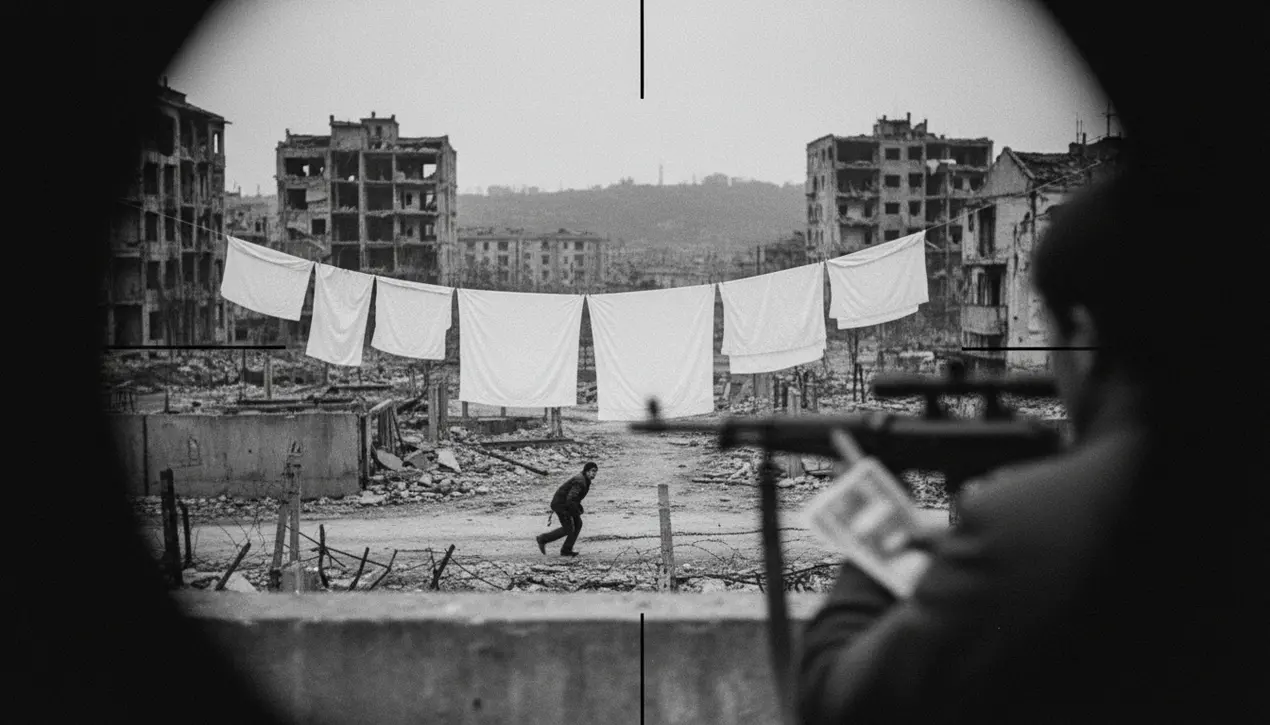
Politicsconflict & defenseWar Reports and Casualties
Italy investigates tourists allegedly paid to shoot civilians in Sarajevo.
OL
Oliver Scott
2 hours ago7 min read
Italian authorities have launched a significant investigation into one of the most disturbing allegations to emerge from the shadow economies of modern conflict tourism, where nationals from Italy and other countries are accused of paying substantial sums to fire upon Bosnian civilians who were risking their lives merely to cross streets under sniper fire in besieged Sarajevo during the 1990s. This case represents a profound escalation beyond typical war zone voyeurism, moving into a realm of transactional violence that analysts have long warned about as a potential risk in ungoverned or minimally governed conflict spaces.The core allegation suggests a macabre marketplace was established, allowing affluent foreigners to essentially purchase the opportunity to become combatants, not against military personnel, but against a trapped civilian population, an act that, if proven, constitutes a severe violation of international humanitarian law and could be interpreted as a crime against humanity. The siege of Sarajevo, which lasted from 1992 to 1996 and stands as the longest capital city siege in modern history, created a catastrophic environment where survival was a daily gamble; snipers positioned in the surrounding hills systematically targeted men, women, and children, turning trips for water or bread into lethal endeavors.The introduction of external actors paying for the 'privilege' to participate in this terror adds a chilling, premeditated financial dimension to the atrocities, raising critical questions about the commodification of human suffering and the limits of legal jurisdiction for crimes committed by non-combatant foreigners in a war zone. From a political risk perspective, this investigation opens a Pandora's box of legal and diplomatic challenges, testing the principles of universal jurisdiction and the ability of the Italian judicial system to prosecute crimes against humanity that occurred decades ago on foreign soil, potentially setting a crucial precedent for how Western nations handle their citizens' involvement in contemporary conflicts from Ukraine to the Sahel.The psychological profile of individuals who would engage in such acts points to a dangerous intersection of extreme wealth, profound moral disengagement, and a desire for ultraviolent experiences that surpasses even the darkest forms of adventure tourism, a trend security firms have noted with growing alarm in various global hotspots. For Bosnia and Herzegovina, this reopening of historical wounds comes at a fragile political moment, threatening to undermine delicate post-war reconciliation efforts and reinforcing a painful narrative that the international community contained not only saviors but also opportunistic predators.The potential consequences are vast: successful prosecutions could empower similar legal actions for other conflicts, create new extraditable offenses for war tourism, and force a major reevaluation of how travel to active conflict zones is monitored and regulated by intelligence and border control agencies worldwide. This case serves as a stark reminder that the architecture of modern conflict is evolving in unpredictable ways, where the lines between tourist, mercenary, and war criminal can become dangerously blurred, demanding a corresponding evolution in international legal frameworks and cooperative enforcement mechanisms to prevent the normalization of such barbaric practices.
#Italy
#Bosnia
#Sarajevo
#siege
#war crimes
#investigation
#tourists
#civilians
#featured
Stay Informed. Act Smarter.
Get weekly highlights, major headlines, and expert insights — then put your knowledge to work in our live prediction markets.
Comments
Loading comments...
© 2025 Outpoll Service LTD. All rights reserved.